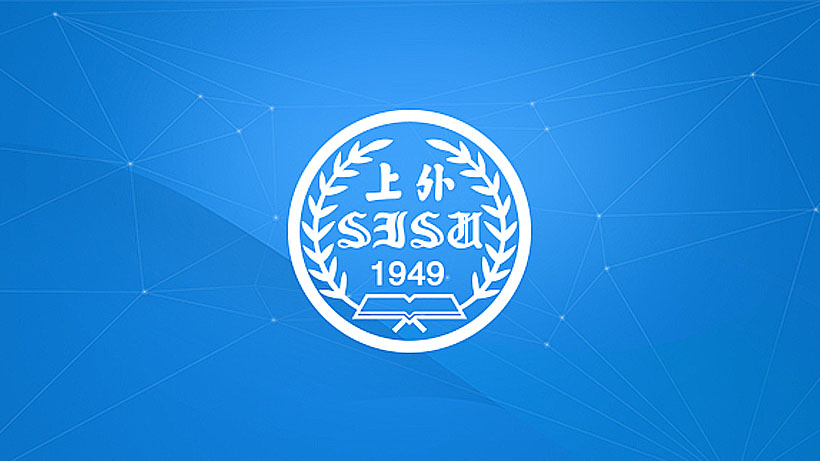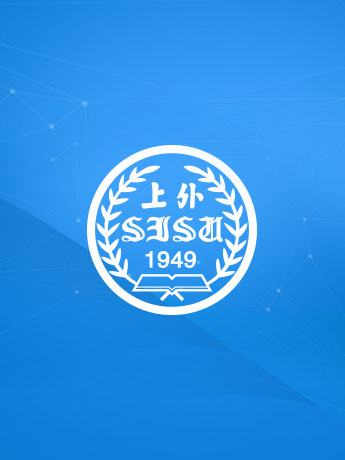
课程名称:研究设计与实施:质性研究方法论系列讲座
地点:报名后微信群内通知
时间:5月7日-5月31日(共18讲)
-
周三 8:15-9:45
-
周五10:05-11:30、13:00-14:30
-
周六10:05-11:30、13:00-14:30
授课对象:上海外国语大学师生
(报名截止日期:4月22日)
本课程将深度介绍质性传播研究的理论与实践,聚焦质性研究的认识论、理论与伦理,教授学生如何明确研究兴趣并规划实地调研,帮助学生掌握实地观察、访谈和解释性分析技能。无论是计划在研究中运用质性方法的学生,还是想深入了解该研究方法的学生,都能从课程中受益。
This course provides an in-depth introduction to the theory and practice of qualitative communication research. It aims at giving students a detailed explanation of the epistemology, theory, and ethics of qualitative research; teaching students how to define research interests and plan fieldwork; helping students master skills in field observation, interviewing, and interpretive analysis; and enabling students to deeply study classic works in this field. Both students who plan to use qualitative methods in their research and those who want to gain a deeper understanding of this research approach can benefit from the course.
主题1 :研究范式、历史与伦理概览
系统介绍实证主义、建构主义、解释主义、批判主义、后现代主义这五种研究范式,帮助学生了解不同范式的核心观点与差异。同时深入探讨质性研究中的伦理问题,如何保护研究对象隐私、确保研究过程公正等,引导学生思考如何在研究中维持严谨性。
Overview of Research Paradigms, History, and Ethics:
This lecture systematically introduces five research paradigms: Positivist, Constructionist, Interpretive, Critical, and Postmodernist, helping students understand the core ideas and differences among them. It also delves into ethical issues in qualitative research, such as how to protect the privacy of research participants and ensure the fairness of the research process, guiding students to think about how to maintain research rigor.
主题2:质性研究设计解析
聚焦研究问题的确定、文献综述的撰写以及理论框架的搭建。引导学生思考研究成果能否助力构建理论模型,是否需要深入研究对象的自然环境去理解其文化与过程,以及想要探究的具体现象是什么。
Analysis of Qualitative Research Design:
Focuses on formulating research questions, conducting literature reviews, and constructing theoretical frameworks. It guides students to consider whether their research findings can contribute to the development of a theoretical model, whether they need to immerse in the natural context of research participants to understand their culture and processes, and what specific phenomena they aim to explore.
主题3:数据处理与分析方法
介绍质性编码,这是一个对质性数据进行系统分类以发现主题和模式的过程,包括归纳编码和演绎编码。讲座中还安排了实践环节,让学生学习制作编码表,将理论知识应用于实际操作。
Methods of Data Processing and Analysis:
Elaborates on qualitative coding, a process of systematically categorizing qualitative data to identify themes and patterns, including inductive and deductive coding. The lecture includes a hands-on session where students learn to create coding sheets, applying theoretical knowledge to practical operations.
主题4:自我民族志探究
阐释自我民族志的概念,即运用研究者的个人经验描述和批判文化信念、实践与经历。强调研究者与他人关系的重要性,以及通过深度自我反思审视个人与社会、特殊与普遍、个人与政治之间的交叉点,展现人们探索生活意义和应对困难的过程。
Exploration of Autoethnography:
Explains the concept of autoethnography, which uses researchers' personal experiences to describe and critique cultural beliefs, practices, and experiences. It emphasizes the significance of researchers' relationships with others and the role of in-depth self-reflection in examining the intersections between the individual and society, the specific and the general, and the personal and the political, revealing people's exploration of life meanings and ways of coping with difficulties.
主题5:民族志研究方法
民族志是通过参与观察和面对面访谈来研究特定环境中人群的方法,着重强调实地笔记的重要性,并引导学生思考在实地研究中观察的重点,以及是否需要记录所有信息,培养学生的田野调查意识。
Ethnographic Research Methods:
Introduces ethnography as a method of studying people in their specific environment through participant observation and face-to-face interviews. It highlights the importance of fieldnotes and encourages students to think about the key points of observation during field research and whether all information needs to be recorded, cultivating students' fieldwork awareness.
主题6:深度访谈
深度访谈是一种开放式、探索性的研究方法,旨在从利益相关者处获取关于特定主题的详细信息,挖掘受访者的观点、经历、感受和看法。课程安排了实践活动,让学生学习设计调查问卷,提升访谈问题设计能力。
Skills of In-depth Interviews:
An in-depth interview is an open-ended and exploratory research method designed to obtain detailed information on specific topics from stakeholders, uncovering respondents' viewpoints, experiences, feelings, and perspectives. The course includes a practical activity for students to design questionnaires, enhancing their ability to formulate interview questions.
主题7:焦点小组研究
讲解焦点小组研究利用群体动态获取相似特征人群共享经验的原理,与以个体为中心的访谈研究形成对比。通过实践让学生设计焦点小组研究,掌握这种研究方法的设计要点和实施流程。
Strategies for Focus Group Research:
Explains the principle of focus group research, which utilizes group dynamics to gather shared experiences of people with similar characteristics, contrasting it with individual-centered interview studies. Through hands-on practice, students design focus group studies, mastering the key points of design and implementation processes of this research method.
主题8:文本分析
主要介绍质性内容分析,其关注的是信息背后的意义,而非信息变量出现的次数。课程安排了对社交媒体信息的分析实践,让学生学会运用质性内容分析方法解读文本。
Key Points of Textual Analysis:
Mainly focuses on qualitative content analysis, which emphasizes the meanings behind messages rather than the frequency of message variables. The course arranges an analysis practice of social media messages, enabling students to learn how to interpret texts using qualitative content analysis methods.
主题9:民族志作业展示与答疑
学生展示民族志作业成果,分享研究过程和发现。在此过程中,大家可以相互学习,提出疑问和建议,共同探讨研究中遇到的问题和解决方案,促进知识的交流与深化。
Presentation of Ethnography Assignment and Q&A:
Students present the results of their ethnography assignments, sharing research processes and findings. During this process, everyone can learn from each other, ask questions, and offer suggestions, jointly discussing issues encountered in research and solutions, promoting the exchange and deepening of knowledge.
孙玮
孙玮博士,美国华盛顿霍华德大学传播、文化和媒体研究系教授,全美传播研究会国际和文化传播分会主席,美国学刊Communication Reports主编。
Dr. Wei Sun is currently a full professor in the Department of Communication, Culture and Media Studies at Howard University in Washington, D.C., USA. She also serves as the chair of the International and Intercultural Communication Division of the National Communication Association and the editor-in-chief of the American journal Communication Reports.
新闻报道

